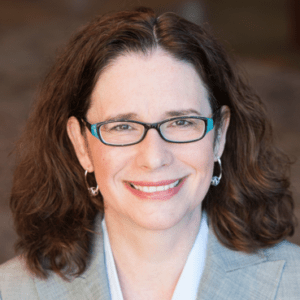Admissions to the Engineering: Engine Systems, M.Eng have been suspended as of spring 2024 and will be discontinued as of fall 2026. If you have any questions, please contact the department.
Community and Support site for the College of Engineering Online Programs
Academics
Apply Your Learning Immediately on the Job
In the Engine Systems graduate program, we understand that to be a successful engineering leader, you must be able to integrate and apply knowledge from different areas to engine development projects that meet market demands and are cost-effective. Nearly every subject in the mechanical engineering curriculum finds application in the engine. Our research-oriented faculty incorporate topics from electronics and mechanical engineering into real-world assignments and group projects.
Curriculum
Engine manufacturers, suppliers, and vehicle manufacturers using internal combustion engines will value the immediate applicability of the skills you will learn in this online Engine Systems program.
The curriculum for the Engine Systems master’s program will prepare you to:
- Manage the complete development process for a new engine
- Clearly articulate customer and application requirements
- Effectively integrate engine design with various manufacturing processes
- Select the combustion system, fuel, and engine system configuration that will best fit a particular application; among many other critical skills
Degree Requirements
You will earn a Master of Engineering degree upon completion of 30 graduate credits required by the University of Wisconsin. This is a 2.5- to 3-year program.
On-Campus Residency Requirement
You will meet with your fellow students and instructors in a summer residency on the University of Wisconsin–Madison campus each August. These on-campus sessions will provide time for networking with your faculty and classmates, as well as software training and development of project groups for your upcoming courses each year. During these sessions, you will develop a clear understanding of the program goals, course requirements and university resources available to you as a distance student. At residency, you will build the relationships that will help you enjoy the program, maximize its benefits, and expand your professional network.
Courses
You can often tailor your learning by selecting projects that use problems and challenges from your own workplace. Courses in the Engine Systems program focus on problems and applications that you can use immediately in your current projects while preparing you for future responsibilities and roles. Course web conferences are the only time-constrained course activities; all other weekly assignments can be accomplished on days and times of your choice.
Required Courses (22 credits)
- EPD 622 Engine Design I | View course overview video
- EPD 623 Engine Design II | View course overview video
- EPD 624 Engine Performance and Combustion
- EPD 625 Engine Gas Dynamics | View course overview video
- EPD 627 Perspectives on Engine Modeling | View course overview video
- EPD 628 Analysis of Trends in Engines
- EPD 629 Powertrain Systems and Controls | View course overview video
- EPD 633 Engine Boosting | View course overview video
- EPD 642 Thermodynamics of Engine Systems | View course overview video
Electives (Choose 8 credits from the list below)
- EPD 612 Technical Project Management
- EPD 620 Electrified Powertrain Systems
- EPD 621 Batteries for xElectrified Vehicles
- EPD 630 Engine Design III
- EPD 631 Electrified Vehicle-Level Modeling
- EPD 635 Exhaust Aftertreatment Systems
- EPD 645 Electric Machines for Traction Applications
- EPD 646 Electric Drives for Traction Applications
- EPD 720 Engine Noise and Vibration
- EPD 701 Writing for Professionals
- EPD 702 Professional Presentations
- EPD 704 Organizational Communication and Problem Solving
- EPD 706 Change Management
- EPD 708 Creating Breakthrough Innovations
- EPD 712 Ethics for Professionals
Approach to Online Learning
UW’s online Engine Systems master’s program is designed for working professionals. The learning environment is flexible—allowing you to make the best use of your time, without interruption to work, family or other commitments.
Experience a Rich Learning Environment
Learning in our program does not all happen in front of a computer. You will get the chance to provide insight in discussions, interact with expert speakers, and use a variety of computer applications.
As a student, you will also have access to the UW-Madison academic libraries, which offer you 10 percent of the world’s library resources. Our students often highlight how regular check-in times, access to the Engine Research Center, and networking opportunities with fellow students, faculty and staff in the engine industry, enrich their experience in our program.
A Supportive, Collaborative Environment
You will progress through the program with the same small group of students, and will constantly interact with them via online tools like web conferencing, online discussion forums, email, and conference calls. Students and alumni often note the cohort approach is essential for staying engaged and on track for completing the program.
In addition, faculty and staff understand the challenges you face as a working professional and distance learner, and proactively monitor your progress. A full-time program advisor stands ready as your advocate in helping you with any issues that may influence your degree progress.
In this online graduate Engine Systems program, faculty from UW’s Engine Research Center and Powertrain Control Research Laboratory team up with leaders from the engine industry to offer a unique learning opportunity.
- Graduate Programs Director: Heather Smith
- Graduate Academic Advisor: Karene Cary, MS
- Emily Bierman, PhD
- Thomas Briggs, PhD
- Eric Fluga, MS
- Kevin Hoag, MS
- John Lahti, PhD
- Nick Nagel, PhD
- Brian Price, PhD
- Bapi Surampudi, PhD
- Mario Trujillo, ERC


